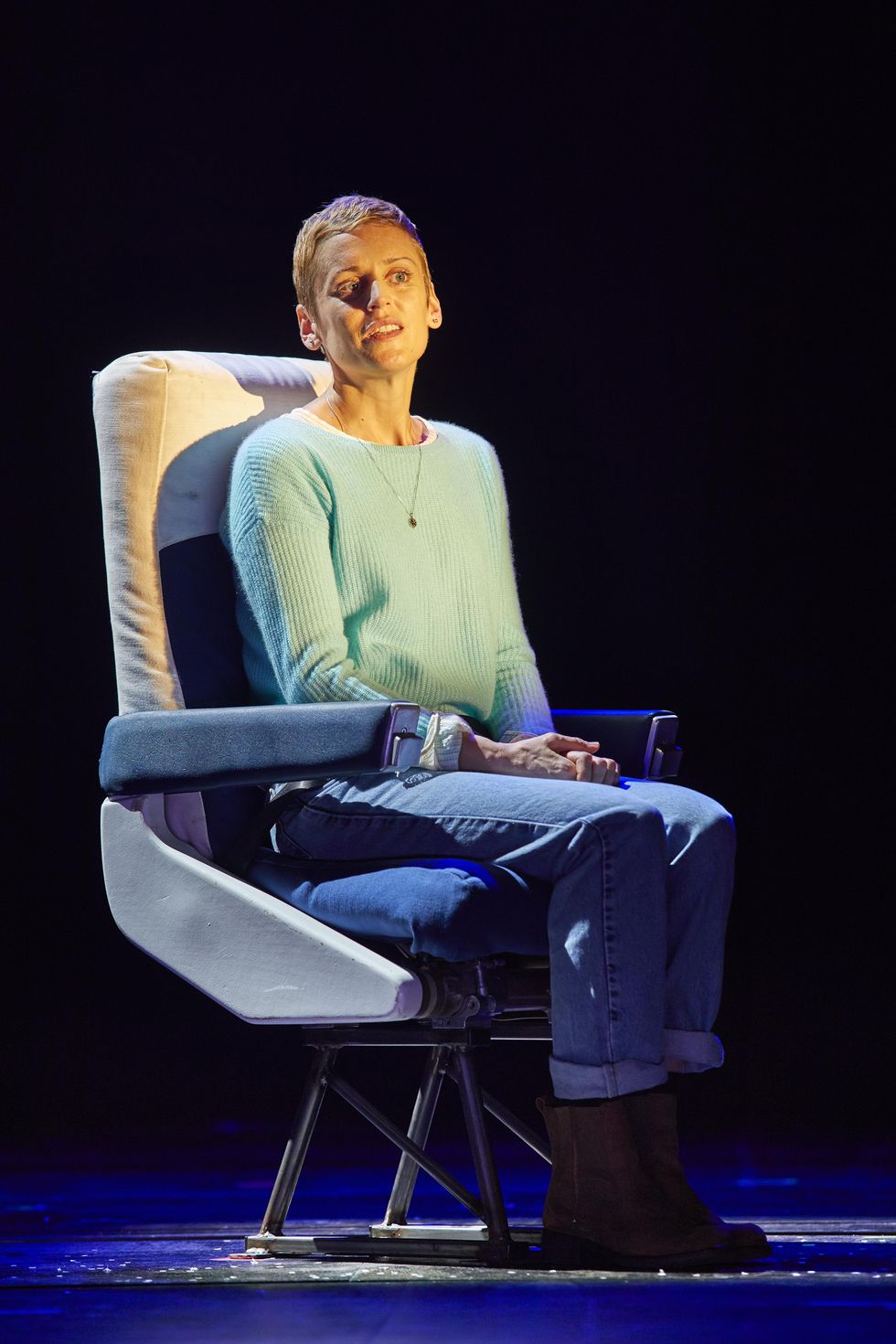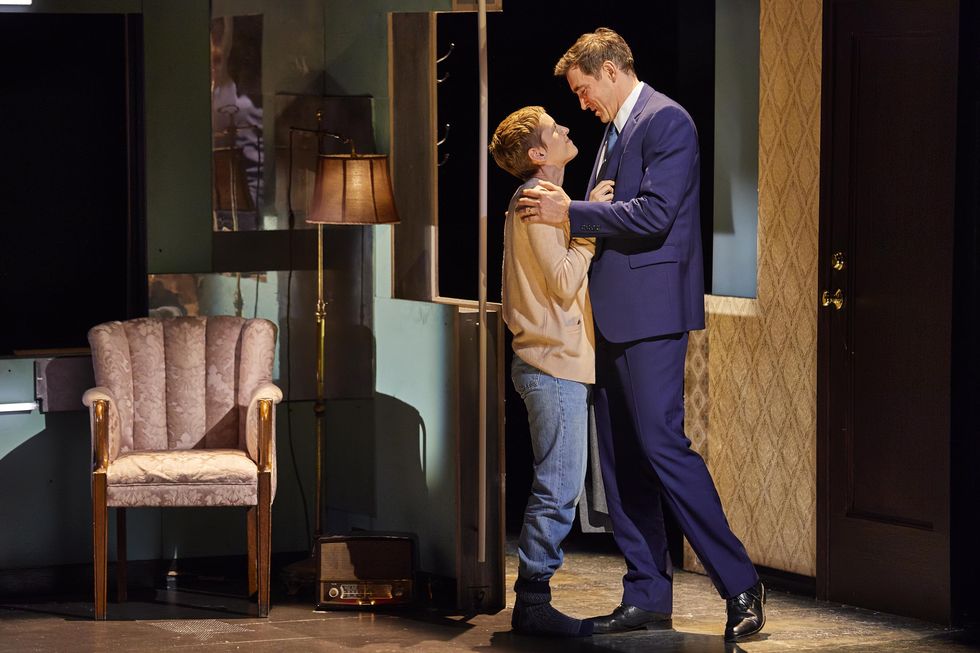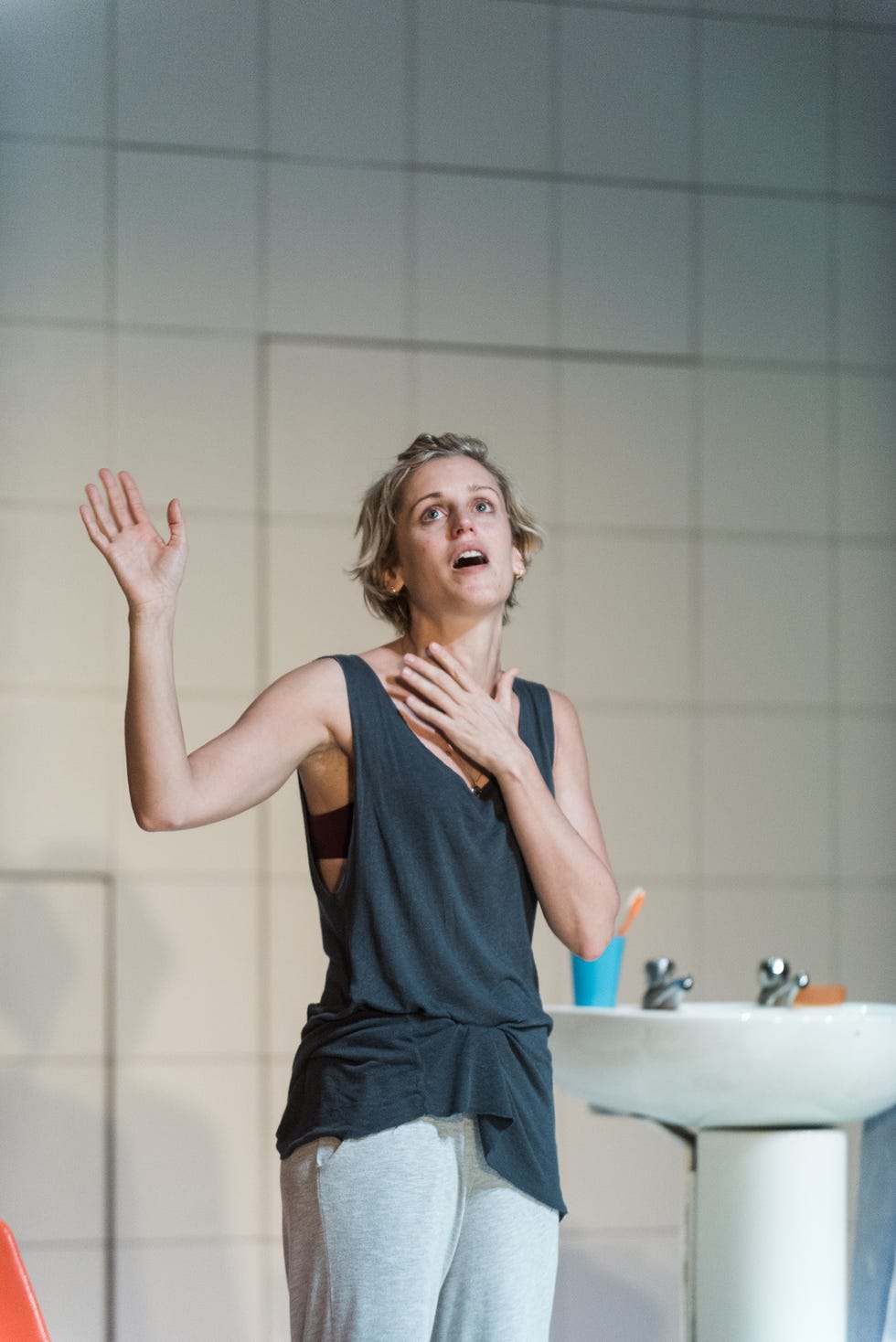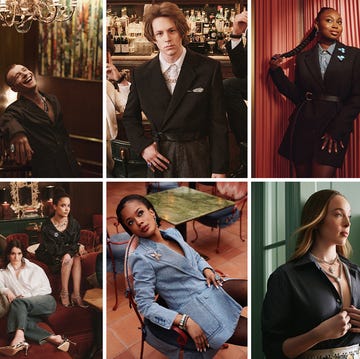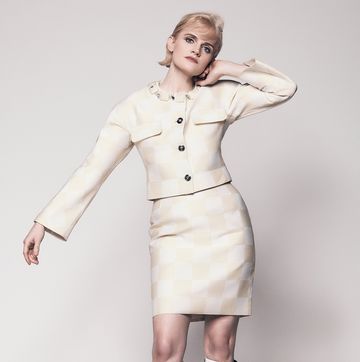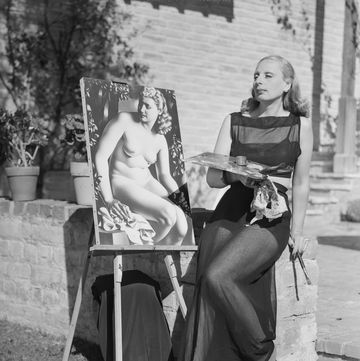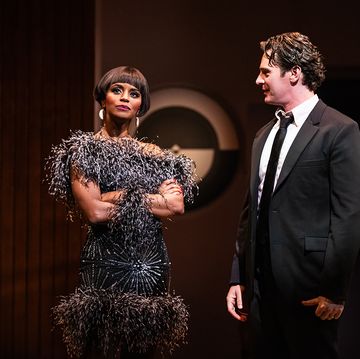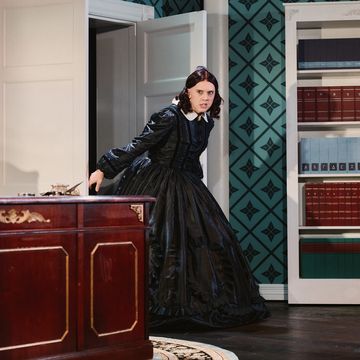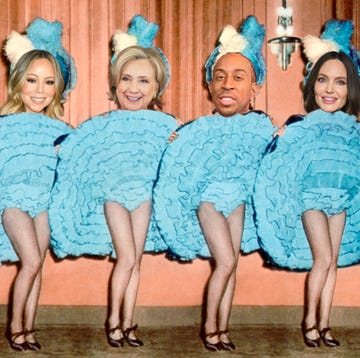When People, Places, and Things, landed in New York in 2017 after a buzzy run in London, Denise Gough’s turn as an addict with nothing left to lose was one of the most talked about shows of the year; the New York Times praised her “extreme, ingenious performance.” And while it was clear that the Irish-born Gough—who’d been close to giving up acting before landing the part—was a major talent, there was no way of knowing then that in just a few months she’d back on the New York stage in the most talked-about revival of the season, Angels in America.
It’s a treat for the audience to see Gough take on the role of Harper Pitt, a fish out of water even at home who’s moved to Brooklyn with her troubled husband. Harper is bright and mad and addicted to pills, and gives Gough a chance to dive head-first into another complicated character. (Her turn in the role during a London production just won her an Olivier Award, her second.) In a talk in her dressing room at Broadway’s Neil Simon Theatre, she explains the appeal of the role, the importance of the revival, and the role she’s dying to take on that nobody will give her—yet.
This is your first role on Broadway. How did you land it?
I don’t think it would have happened if I hadn’t been in People, Places. and Things. Marianne [Elliott, the Angels director] saw that and wanted me to do this. So, I met Marianne to talk about it and to read for her. I had done this play in drama school—I had played Hannah, because when you’re 20 in drama school, everybody plays older parts—so I knew the play a little bit but not how profound it was. When I met Marianne, I knew I wanted to work with her, and I knew I had to be a part of Angels in America because it’s one of the greatest plays possibly ever written. And what’s the point in being an actress if you’re not going to do that? It’s hard and all that, but I’m not going to mind, it’s Angels in America on Broadway—it doesn’t really get much better than that.
It’s an interesting time for the show to be revived, since so much in the world has changed but in watching it you realize so much hasn’t.
The politics of this play became much more resonant because it’s not as shocking to see gay men on stage now, and it’s amazing that we’ve made that progress because when it was first done, it was a big thing. That shows us that we have made some progression, and it shows us that we still have a little bit more to go, but politically, it’s like, what do we need to do so that this doesn’t happen again? I always think about it in relation to an addict hitting rock bottom—a moment of clarity—you have to hit the ground before you can start building back up.
Are you getting a different reaction from American audiences that from the audiences in London?
Absolutely. American audiences just get so much of it, and I don’t think that happens in London, with all the references. Here, there’s a real love for it, you know, and it feels like the play has come back home, so it’s very moving. It’s a real privilege to do and I don’t say that in sort of an actor-y way, I mean it genuinely.
Your last show in New York was People, Places, and Things, which was also an intense drama. Do you ever want to take on something funny or just not quite so serious?
I would like to do something lighthearted, but nobody gives me that stuff. John Ridley [the writer, director, and producer], who I did a mini-series called Guerilla with, came to see me and he was like, “I’m gonna write you a romantic comedy—somebody has to write you a romantic comedy!” But I guess I get these parts because I’m able to play them.
Why’s that?
Because I hate seeing them played badly. Or indulgently. I’m attracted to parts that have meaning. I don’t think I’d ever be able to do something just fluff.
How do you approach a character like Harper?
She could easily just become very passive, and I don’t really play passive women, so I always saw her as seeking. I think as soon as you make any character active, they can’t help but stand out, and for me, I think the mistake would have been for me to have played her as a drug addict—because if you just play a character for their addiction, then they become that, and so they’re easy to put in a box. I guess she could sort of blend into the background, but I’m not the sort of actress who will let that happen. I care too much about her to let that happen.
The show is done in two parts that total around seven hours. You’re not in every scene, so how do you pass the time backstage?
There’s a Scottish game that James has introduced called Double—which is a really funny card game. We don’t play that often. There’s a lot of sitting around, reading, though I can’t read very heavy stuff. I’m trying to learn a language, I’m desperate to learn French.
You’ve done these two powerhouse stage performances and have a bunch of movies coming out in the next year. Is there anything you’re dying to sink your teeth into next?
I would love to do Cabaret. That would be really good, but I don’t know when I would do it because I would also love to do People, Place, and Things on Broadway—and I would love to do People, Places, and Things as a film. I want to play women who mean something, but TV isn’t yet the place where I get really excited from and theater is just so easy for me, I just love it—and it’s all I ever wanted to do in the first place anyway.
Adam Rathe is Town & Country's Deputy Features Director, covering arts and culture and a range of other subjects.

